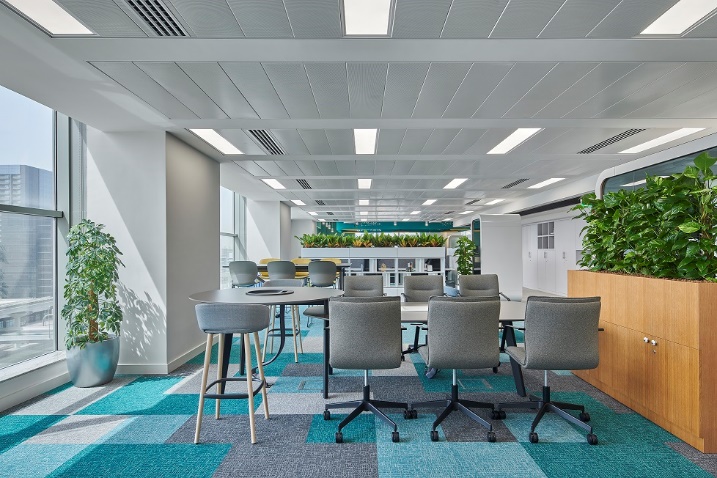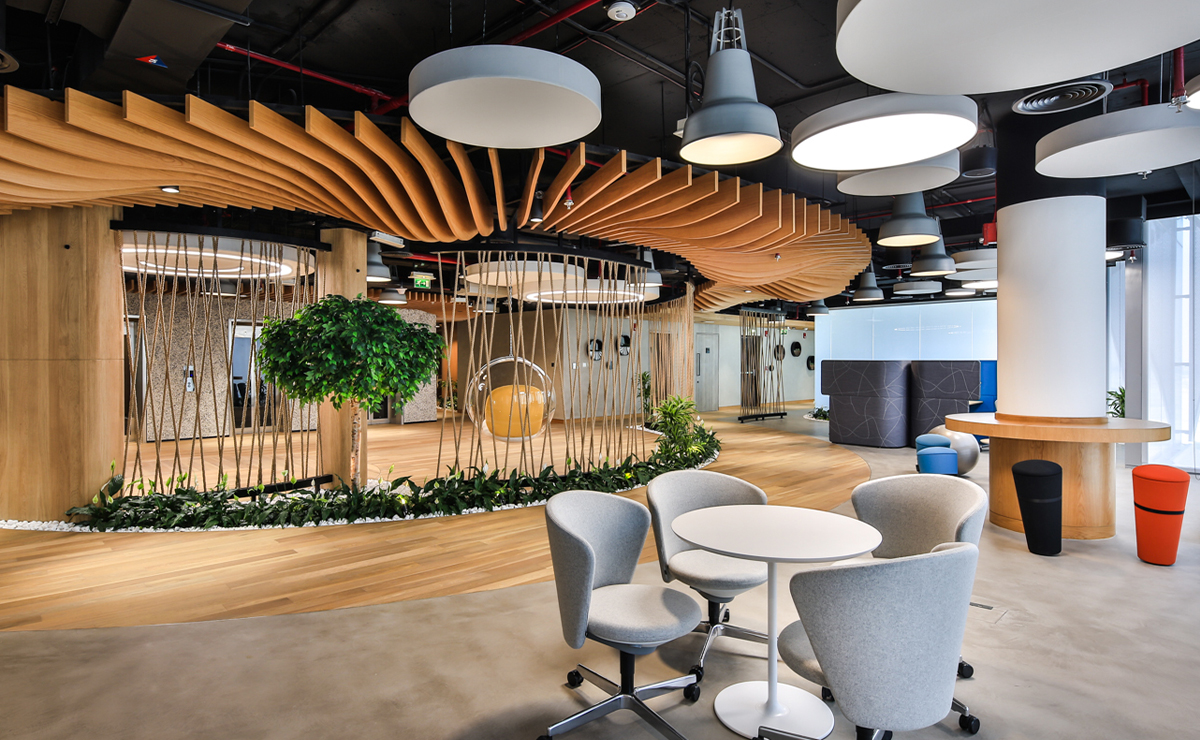

Nicola Trivett
General Manager & Sustainability Leader
Sustainability has become a critical aspect of business strategies, with companies increasingly recognising the importance of focusing on the environmental pillar of sustainability[1]. This is the first article in our three-part series that delves into the environmental, social, and economic benefits of embracing sustainability in the workplace. In this piece, we explore the environmental advantages that arise from incorporating sustainable practices in the office, and how these can contribute to a healthier planet and a better tomorrow.
ENVIRONMENTAL BENEFITS
Improve Energy, Water, and Resource Efficiency
Optimising energy consumption is crucial for businesses seeking to reduce their environmental footprint.[2] By implementing energy-efficient practices, such as installing LED lighting, retrofitting insulation, and using smart energy management systems, companies can significantly decrease their energy consumption and costs.[3] In addition, businesses can actively source their energy from renewable sources, further reducing their dependence on fossil fuels.[4]
Enhancing water conservation is another way businesses can contribute to environmental sustainability.[5] By implementing water-saving fixtures, such as low-flow taps and toilets, using water-efficient appliances, and promoting water-saving behaviours among employees, companies can minimise their water usage and reduce the strain on precious water resources.
Sustainable procurement is also essential for companies aiming to reduce their environmental impact.[6] By sourcing environmentally friendly products and materials, and using recycled and sustainable materials in office design, businesses can considerably lower their resource consumption and contribute to a greener economy.
Reduce Carbon Footprint (GHG Emissions)
Buildings generate 40% of annual global CO2 emissions (building operations are responsible for 27% annually), highlighting the need for our workplaces to change if we are meet the 1.5*C climate target set by the Paris Agreement.[7]

Transforming commercial buildings and adopting sustainable design, construction and fit out approaches is one of the major actions businesses can take to tackle climate change. By integrating sustainable building design elements, such as green roofs, natural ventilation, and solar panels, companies can significantly reduce their energy consumption and greenhouse gas emissions.
Additionally, businesses should consider seeking green building certifications, such as LEED or BREEAM, when they fit out their workplace interiors. These global frameworks help achieve more efficient, green building interiors that provide environmental, economic, and social benefits.[8]
Minimising transportation emissions is a significant way for businesses to reduce their carbon footprint.[9] Encouraging employees to use public transport, carpool, or cycle to work can decrease greenhouse gas emissions associated with commuting. Companies can also establish remote work policies and use videoconferencing to reduce the need for business travel, further lowering their transportation emissions.
Reduce & Manage Waste
Implementing waste reduction strategies is crucial for businesses striving to lower their environmental impact.[10] By promoting paperless practices, using reusable products, and encouraging employees to adopt the “reduce, reuse, and recycle” mantra, companies can significantly minimise their waste production. For instance, businesses can provide reusable cups and cutlery in the office, eliminating the need for disposable alternatives.
Establishing proper waste management systems is essential for responsible waste disposal.[11] Companies should set up recycling and if possible composting facilities in the office, ensuring that waste is handled in an environment friendly manner. It is also crucial to provide clear signage and educate employees on proper waste segregation to maximise the effectiveness of these systems.
Engaging in responsible disposal is necessary for certain types of waste, such as electronic waste and hazardous materials. Businesses should collaborate with certified waste management companies to ensure that these items are disposed of correctly, minimising the potential environmental harm caused by improper disposal.
A Greener Tomorrow
Embracing environmental sustainability in the workplace is more than just a responsible business practice; it is a valuable investment in the future.[12] Companies that prioritise reducing their environmental impact can enjoy a plethora of benefits, including improved resource efficiency, a smaller carbon footprint, and better waste management. By incorporating sustainable practices into their operations, businesses not only actively contribute to the global effort of tackling pressing environmental challenges but also position themselves as leaders in their respective industries.
Furthermore, adopting sustainable practices can have a positive ripple effect on other aspects of the business, such as employee satisfaction, customer loyalty, and cost savings.[13] As we will explore in the upcoming articles in this series, the benefits of sustainability extend beyond the environmental realm, encompassing social and economic advantages as well.
Creating a greener workplace can also enhance a company’s reputation among consumers, clients, and investors, who increasingly value businesses that demonstrate genuine concern for the environment.[14] In an era of heightened environmental awareness, companies that take the lead in reducing their impact and promoting sustainable practices will be better positioned to succeed in the long run.
By integrating green initiatives into their daily operations, businesses can foster a culture of environmental responsibility among their employees, encouraging them to adopt eco-friendly habits both in the workplace and in their personal lives. This collective effort can lead to significant positive changes in the communities where these companies operate, inspiring other businesses and individuals to join the movement towards a more sustainable future.
In summary, focusing on the environmental benefits of sustainability in the workplace is a win-win situation for both businesses and the planet. By improving energy, water, and resource efficiency, reducing carbon emissions, and managing waste responsibly, companies can make a tangible difference in addressing environmental challenges while enjoying the numerous advantages that come with sustainable practices.
Stay tuned for the next article in our three-part series, which will explore the social benefits of sustainability in the workplace. Together, we can create a more sustainable world that benefits people, planet, and profits, contributing to a brighter future for all

Nicola Trivett
General Manager & Sustainability Leader




















